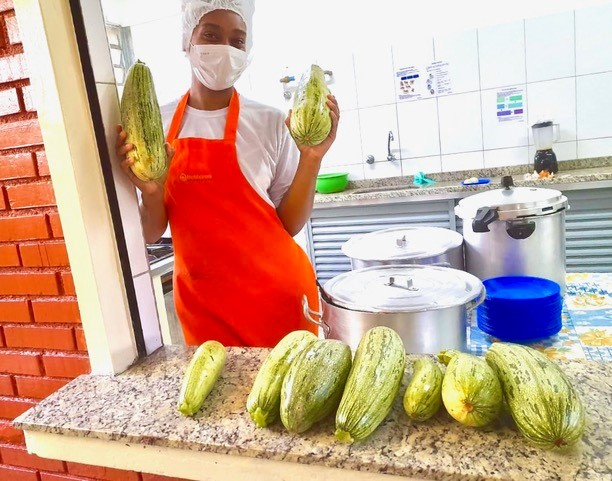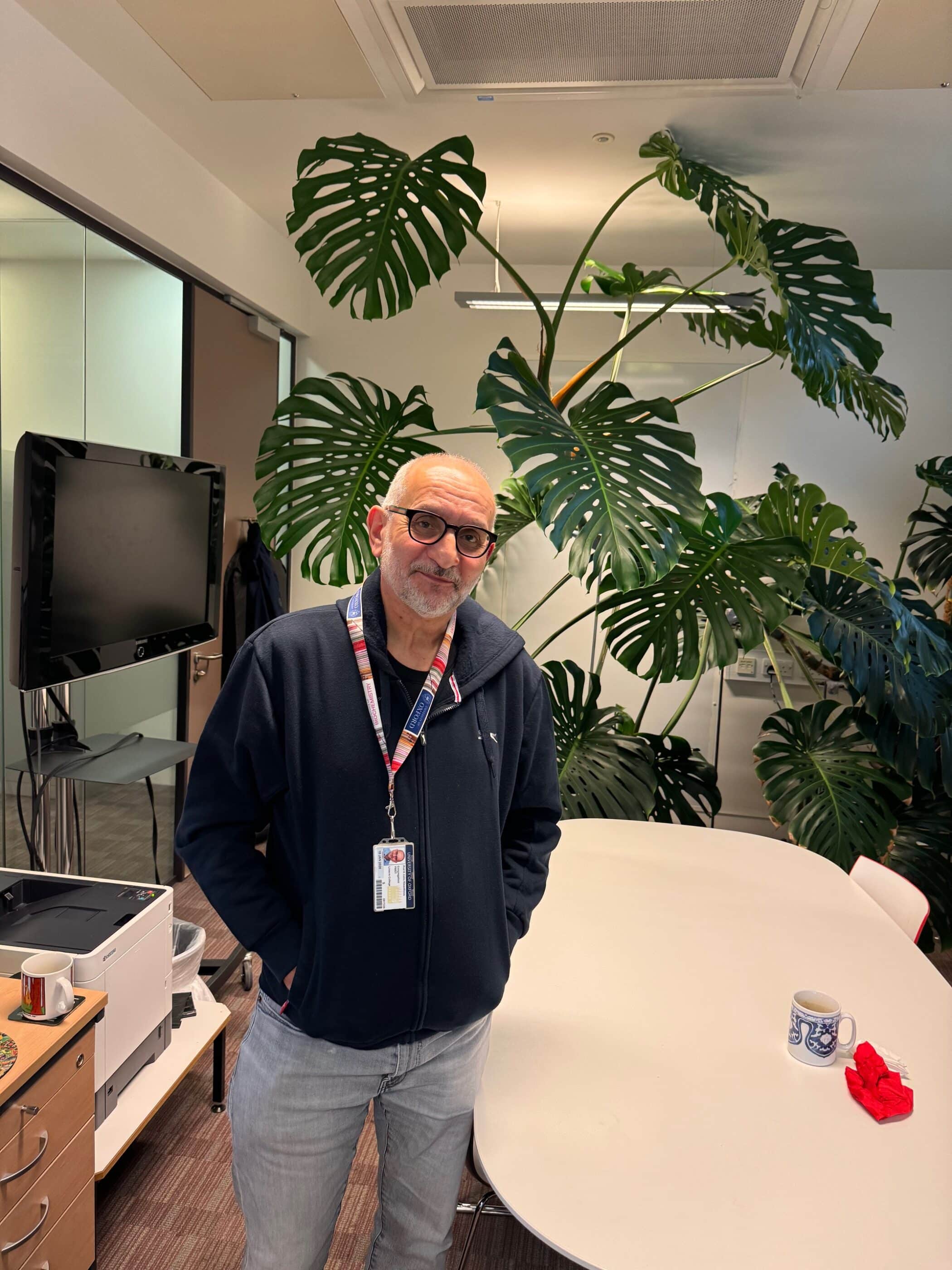Dandara’s favourite vegetable is lettuce. The six-year-old attends a state school in the poorest district of São Paulo. Dandara’s father died early; her mother sells sweets in buses to make a living for her family of five. Fruits and vegetables are often missing from the plates of poor families. And even the school lunch usually consists only of beans with rice. What else can be prepared with the 8 cents per child and meal provided by the state (CAISAN, 2016)?
The Brazilian NGO CIDADES SEM FOME (“Cities Without Hunger”) tackles this problem through their School Garden project in the East Zone of São Paulo, where they are most needed. The megacity is socioeconomically divided: In the East Zone, the Human Development Index reaches 0.48 to 0.70 – much lower than in other parts of the city, where it is “high” to “very high”, at 0.80 to 1.00. An estimated 23 % of the city’s population live in favelas. The lower the income, the greater the proportion spent on food and the less fresh fruit and vegetables are consumed. Malnutrition and undernourishment are the result. Public schools in São Paulo are obliged to offer at least three meals a day. Primary and secondary schools are allocated 30 Brazilian Centavos roughly8 Euro Cents), per child and meal (CAISAN, 2016). With that amount, it is almost impossible for schools to offer more than beans and rice.
The goal of the School Garden project is to create access to healthy food for children, to prevent malnutrition, and to foster a healthy development. At the same time, the project offers environmental and nutritional education to the children.
The gardens are created on vacant land and school yards pertaining to public schools. CIDADES SEM FOME’s team of agricultural technicians tests the soil for toxins and pH, prepares it depending on the requirements through plowing, liming and humus soil. In case of soil contamination, raised beds are built. Thereafter, the team supports students and teachers in planting and sowing the first time together.
School gardens fulfil a variety of purposes. First and foremost, the produce adds to the school meals year-round: The humid, subtropical climate of São Paulo allows for the cultivation and harvest of vegetables, fruits and herbs 365 days a year! Second, the gardens are “green classrooms” introducing children to environmental education, nutrition, biology, and, of course, to gardening! Third, children are encouraged to take the surplus harvest home to their families. That way, not only the children themselves but also their parents and siblings benefit from the produce.
Since 2012, the CIDADES SEM FOME has built 40 school gardens reaching more than 14,500 children. This year alone, another ten gardens are implemented that will benefit approximately another 4,000 children. More information on the project can be found at https://staedteohnehunger.de, or directly via email to bischof@staedteohnehunger.de.
Linacre alumna Alice Bischof (2016) is Vice Chair of the Cities Without Hunger Germany (Städte ohne Hunger Deutschland e.V.). She started working for the NGO during her BSc in Agricultural Sciences back in 2014. During her MSc in Oxford, you might have seen her walking around with a lettuce in her hands, the symbol of CIDADES SEM FOME.


















